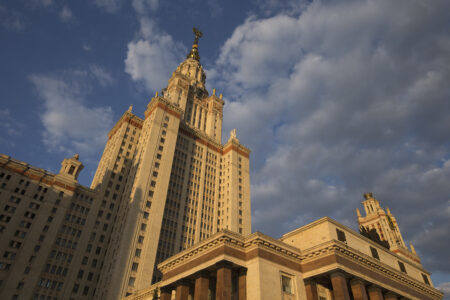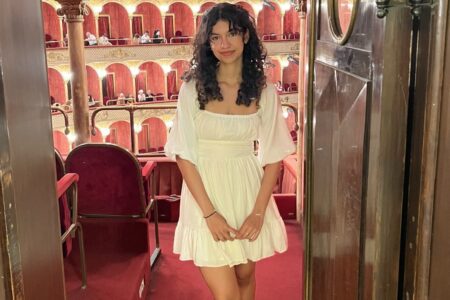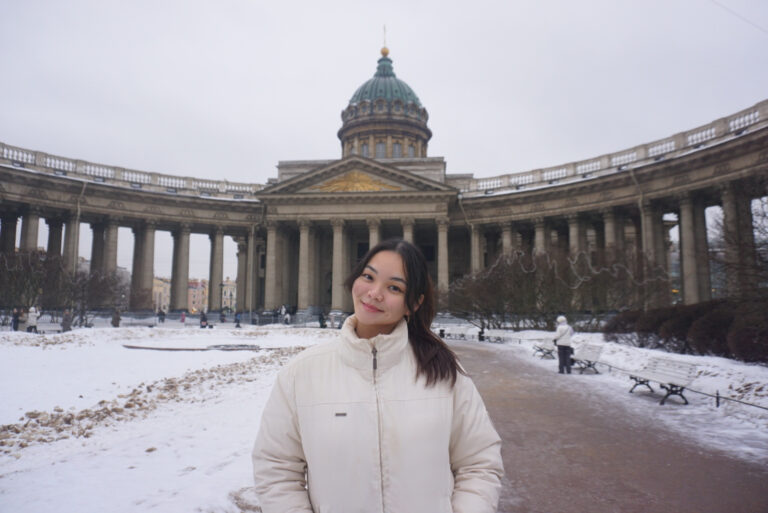
If you were to tell a stranger you’re studying medicine in Russia, you often get a mix of reactions.
In Anya Kimberly Kow’s case, it was received with a range of stereotypical questions asked by her e-hailing drivers in Malaysia.
“The first question they’ll ask is, ‘Is it true you drink vodka for breakfast?’ or ‘Is it true you eat bears for dinner?’” shares Kow.
Kow used to have the same reaction before moving to Russia to pursue her degree.
After all, as of October 2024, only 617 Malaysian students were enrolled in Russian programmes. Most could be found in medicine, engineering, oil and gas, and marine technology courses.
This number is a far cry from the estimated 4,000 Malaysians studying at the University of Nottingham in the UK alone, according to the Higher Education Statistics Agency statistics.
So, how did Kow end up taking the road less travelled — almost 9,000 kilometers away from home?

Kow credits her mother for being her greatest support system throughout her educational journey. Source: Anya Kimberly Kow
Studying medicine has always been the dream, but not studying medicine in Russia
Most kids dream about being astronauts or pop stars when they grow up — but Kow knew that her dream was to become a doctor.
“I just like seeing blood. I like seeing internal organs. I know it’s a little unsettling and not something you’d want to hear from someone in the medical field, but that was how I thought back then,” she laughs.
The older she got, the more she knew which field of healthcare she wanted to get into. Today, she’s working her way to become a neurosurgeon.
Choosing this field means working with the most essential organs in the body, like the brain, and other areas of the nervous system, including the spinal cord and circulatory system.
It involves fine work, no easy task.
Training takes years, up to 16 years to become a neurosurgeon officially.
But at the end of the day, you’ll save a life, and that’s what Kow is in it for.
“It’s my calling,” she says.
There’s more to Kow’s story of pursuing medicine too. A few years after deciding on this path, she lost her maternal grandmother, and that was when she first saw her mother cry.
“That pushed me to do what I wanted to do,” says Kow. “I did not want to see other little girls or boys see their mothers cry, especially when they lost someone to an illness.”
While her dream has been set in place, it hasn’t been the easiest journey to embark on.
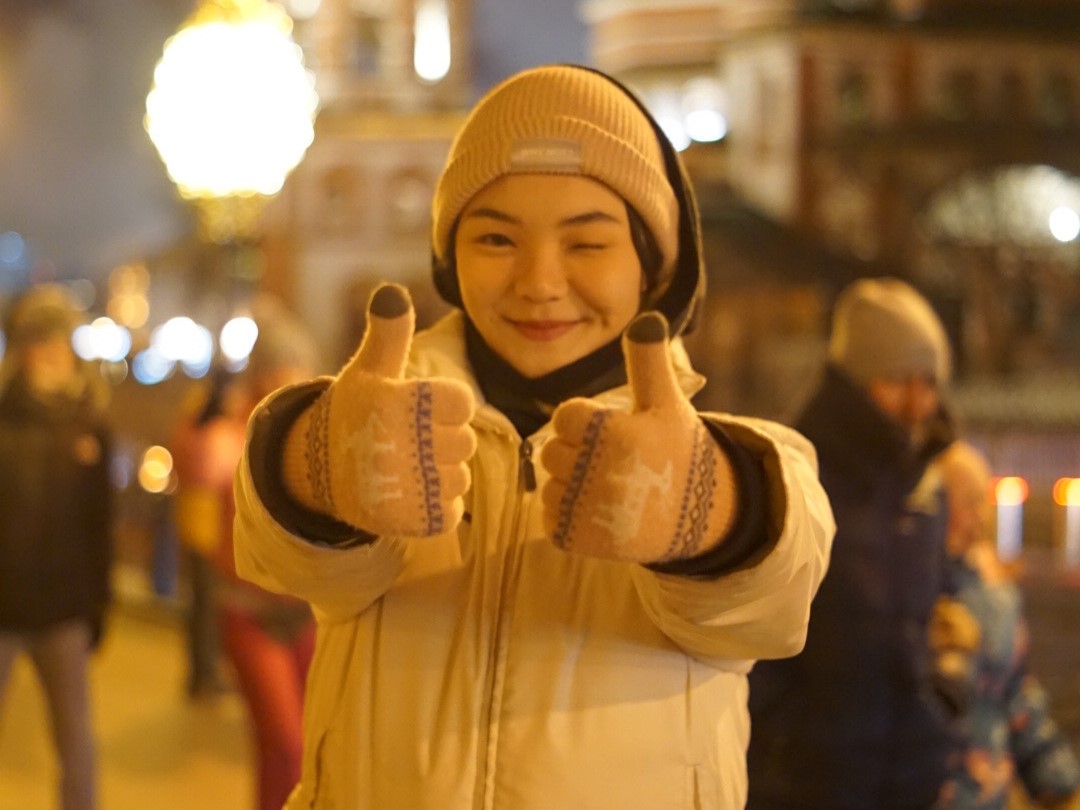
While waiting for her acceptance to medical schools, Kow founded a non-profit mental health organisation called “You Matter” to raise awareness of mental health in her local community of Sabah. Source: Anya Kimberly Kow
How she turned down six scholarships and ended up studying medicine in Russia
As valedictorian and scoring straight A’s for 11 subjects in her Sijil Pelajaran Malaysia, the national examination sat for by all fifth-form secondary school students in the country, Kow made the preparations to apply to university.
Her applications earned her six fully sponsored programmes, with two of them being offered abroad.
However, the deal breaker was that none of them offered her a place in medical school.
For Kow, if it’s not medicine, then it’s nothing at all.
“I received a full scholarship to a university in New Zealand and Germany for an accounting and engineering degree, respectively,” said Kow. “The funny thing is engineering was my second choice, but my heart wanted to do medicine. So, I rejected all the offers.”
“If I were to say yes to either university and go on a different path, I don’t think I would be doing my younger self justice.”
Despite not having a university to attend, Kow applied to pre-university programmes and got into her first choice, the University of Malaya. It’s ranked 60 in the world by QS World University Rankings 2025 and is her mother’s alma mater.
However, after attending a few pre-university courses, Kow left and opted for A-Levels at Institut Sinaran as it matched her educational goals better.
When it came time for an undergraduate programme, she applied for scholarships that would bring her abroad. And from the list of universities she could apply to, one option was in Russia.
“I was intrigued, so I did my research. I got in touch with a student at the university, and after hearing what they had to say, I applied,” Kow shares.
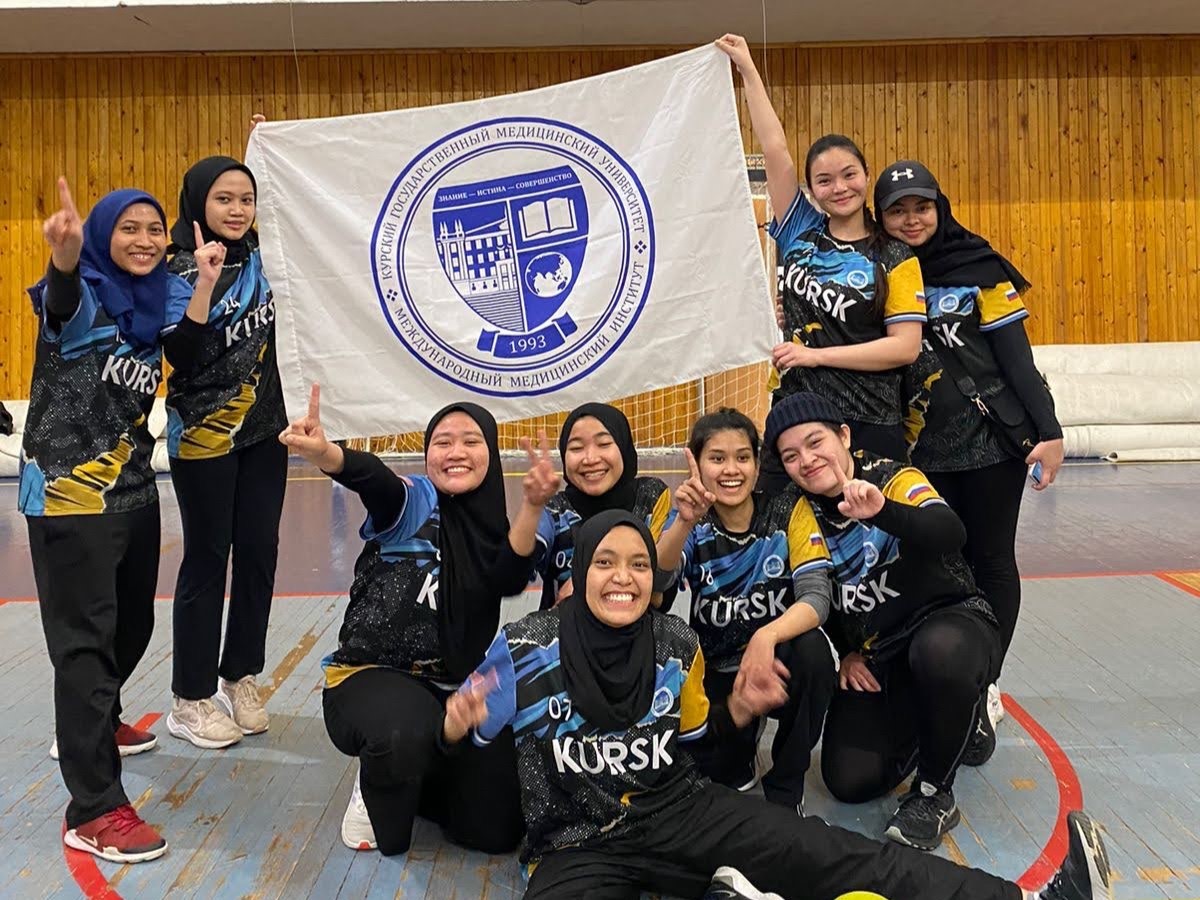
Kow participates in netball as an extracurricular activity and has won gold medals when representing her university at intervarsity sports competitions in Moscow. Source: Anya Kimberly Kow
It’s no surprise that Russia was the place to be for pursuing her dreams.
The country is known for its high-quality medical education and is recognised internationally by the World Health Organisation.
Sechenov University in Moscow, Russia, is ranked 150 worldwide by QS World University Rankings for medicine. Several other Russian universities are within the 200s to 300s over 700 placings.
Medical degrees in Russia are highly affordable, too.
In Russia, it will cost approximately US$4,000 per year to receive a general medicine degree, and it will take you six years to complete, making it a total of US$24,000 for your entire degree. Accommodation fees and living expenses would cost US$1,500 per year.
Pursuing a medical degree in the US or UK would cost you an average of US$59,605 and US$49,437 (£39,000) per year.
Plus, universities in Russia used a grading system that Kow found satisfactory. Here, a student’s performance is indicated by numbered grades on a scale of one to five.
Then, there was the bonus of learning a new language too — Russian, in Kow’s opinion, is one of the most complicated languages to learn, and choosing to study in Russia would provide the best opportunity and environment to do so.
With that decided, Kow chose Russia as her study abroad location and is now a third-year medical student at Kursk State Medical University (KSMU).
“As a medical student in Russia, I can say that Russian universities greatly stress practical training alongside theoretical knowledge,” shares Kow. “We use cadavers every day. We must touch and interact with them during our classes rather than look at 3D models online.”
And among it all, studying in Russia meant living in a beautiful country with vibrant cities and infrastructures filled with friendly locals.
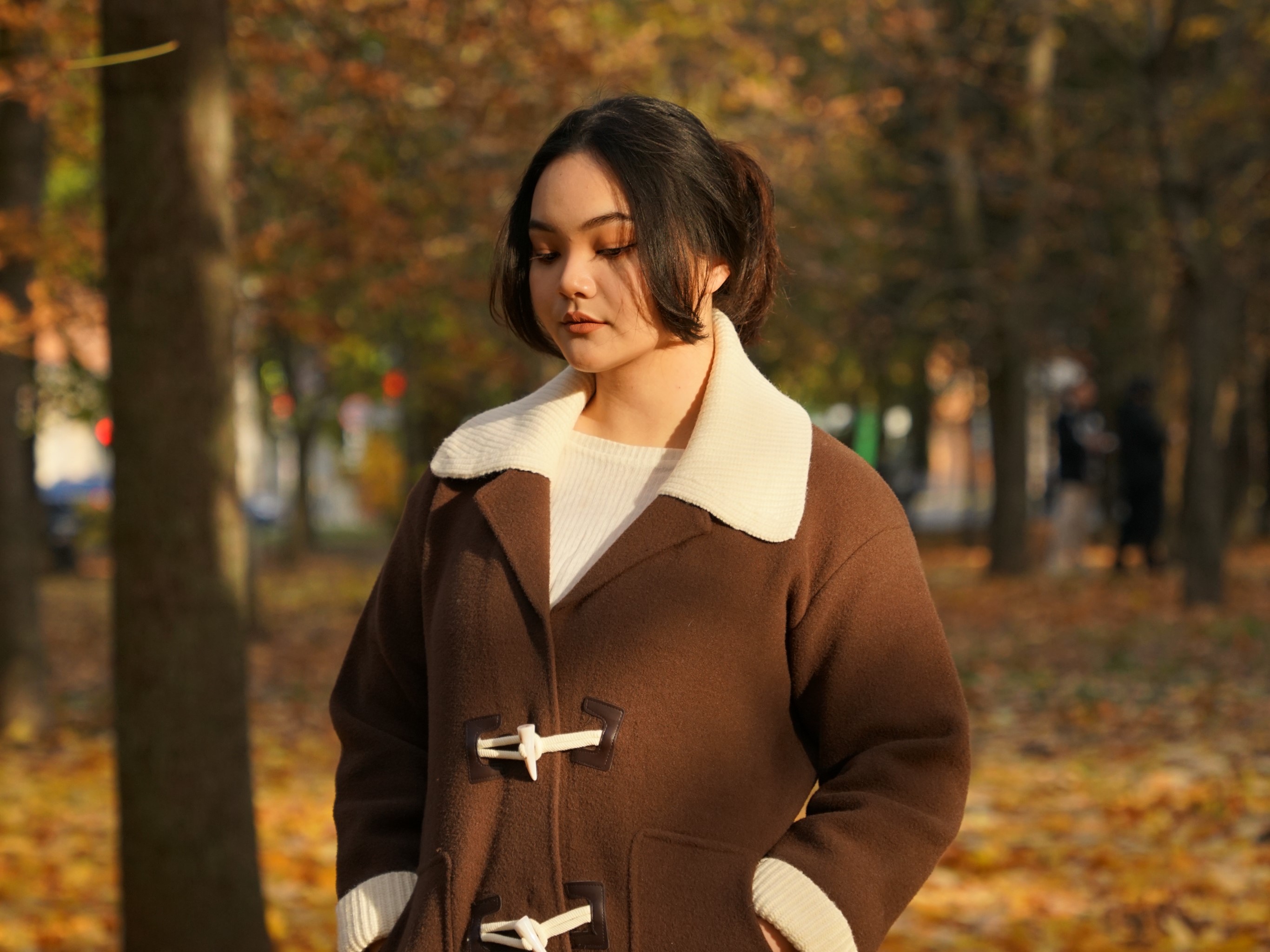
Kow has spent most of her teenage years away from her family due to boarding school, and through that, she learned what independence meant at a young age and believes that’s important for anyone looking to study abroad in Russia. Source: Anya Kimberly
‘Being away from my family taught me independence and perseverance’
Kow grew up in a single-parent household, which meant learning to be independent at a young age.
On top of that, she moved away from her family at 13 to attend boarding school, and she claims it to be one of the most challenging things she had to do at that age.
“Since leaving home at a young age, there hasn’t been a time where I could live with my family for a full year,” she says. “I was constantly moving around from one state to another, but this led me to learn to be independent and build my perseverance.”
Now that she’s living in Russia, Kow has experienced firsthand how her previous years being away from her family have helped her adapt to her current surroundings better.
“I used to cry a lot when I was apart from my family, but now I have found ways to push through and make things work while living on a different continent,” she says.
As an international student, facing hardships such as language barriers and cultural differences are common. However, Kow has been giving it her all to overcome them.
“If I quit halfway through, then all the hardships, pain, and tears that I went through would all have been for nothing,” she says.








